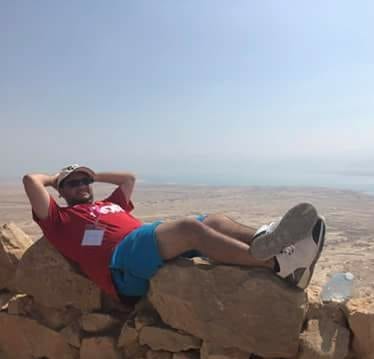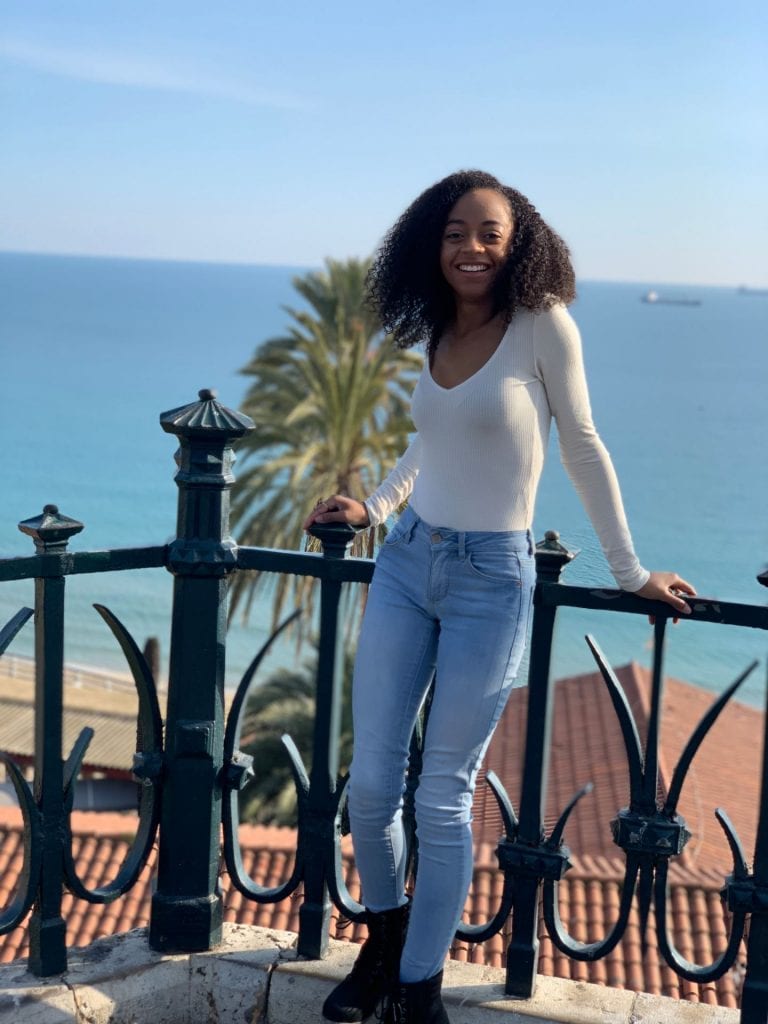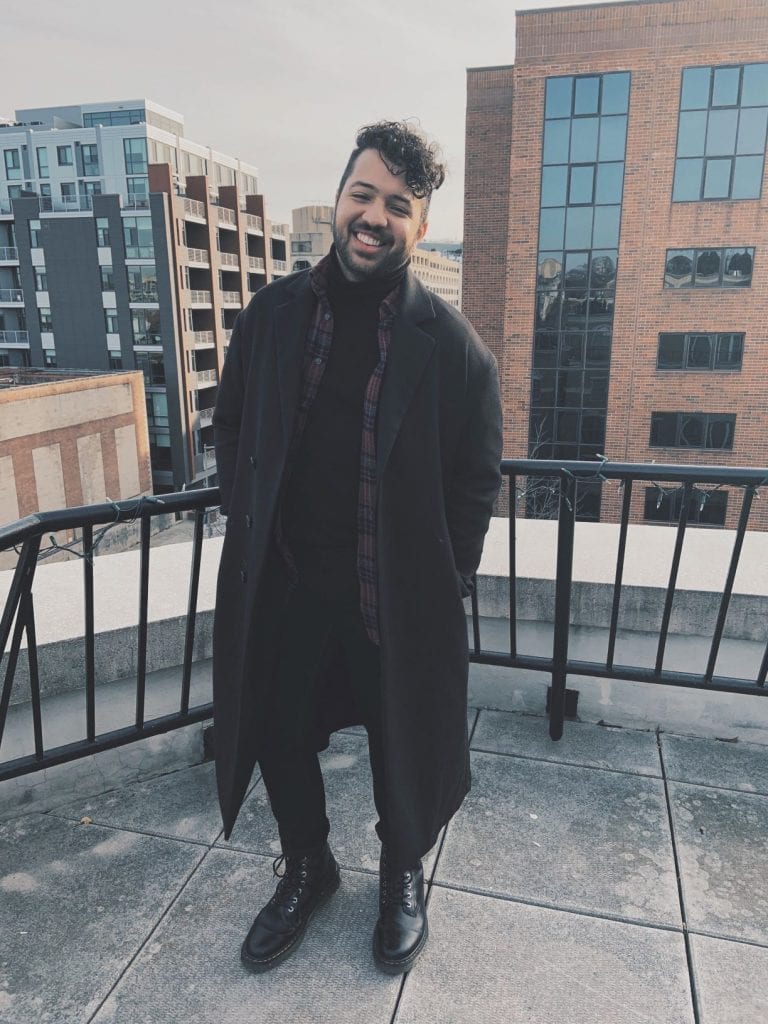Israel at 70 is still a young 21 year old. Israel as a country is 70 years, its history is almost 6,000 years old, and its democratic system turned 21 years old. Two days ago Israel held the 21st Knesset elections. Man was I happy to be in Israel for these elections. Of course as a GW student I take all elections very seriously. So these past couple of weeks I really dove into studying, reading, watching and of course going to debates and discussions about this year’s elections in Israel. Granted I did put in more effort than many people I knew because I thought was going to vote, but I don’t have residency just citizenship. The great Israel fellow of GW gave me great words of advice in saying with voting in Israel every vote counts 10 fold and because of this it’s a lot more responsibility. Well, results came in and Bibi will still be Prime Minister after the coalition part of elections are done. That is basically the quickest way to summarize all of this. I could also tell you the party I wanted most in the Knesset had a Red Line in order to join a coalition - that is for legalization of marijuana. Anyways it is always an amazing experience to participate in democracy and although I didn’t vote I still gave my opinions and still took part in the discussion. Which, without a vote, are two crucial things that one can do. It is also not everything. Remember GOTV. I’m on break now, very happy about this. I can finally not worry about assignments to do all the time, but to keep pushing myself. I’m still going to work through this break a little bit. The most exciting thing I’m looking forward to on this break is a three day hike I will be taking from the Mediterranean sea to the Sea of Galilee. That’s all folks, Israel is just as young as we all are, but only at its heart, and that is how many times they have held democratic elections. That’s right all those people who don’t like Israel it is the one place in this part of the world with a democratic system.
Month: April 2019
A culture of many cultures
Maybe it doesn’t have water, but Jordan sure is rich in culture and history. In these past three months, I’ve had the honor of learning from Amman’s rich history, amazing sights, and from people’s stories of religious tolerance and cultural identity. Jordan is known around the world for its devotion to peace and humanitarian efforts as it takes in thousands of refugees every year and provides them with the safety and security they can’t find in their own countries. Because of this, Jordan has an incredibly diverse population filled with many different cultures, religions, and identities; yet, somehow, the spirit of unity and tolerance is preserved.
I was witness to this in what became one of my favorite experiences here in Jordan as I took a taxi to school one morning and met one of the kindest drivers in Amman. Immediately after I got in the car, my driver, Khaled, demonstrated genuine interest in who I was and where I came from. I shared that I was from Costa Rica, but I had migrated to the United States when I was younger and was completing my studies there. Enthusiastically, he told me he had moved to Jordan from Palestine when he was young and that Jordan had provided him with opportunities he wouldn’t have had if he had stayed. He shared that his parents had made the difficult decision to leave their home, because they wished to provide him and his brothers with a safe life and better opportunities. Curious, I asked him if he struggled to find an identity as a Palestinian in Jordan. He explained that because of Jordan’s diverse nature and continuous acceptance of refugees, he had been able to take on the Jordanian identity proudly while also identifying as Palestinian. He told me that his background would always be Palestinian, but that he also identified with the Jordanian national identity for the country had provided him with a safe home and great generosity. As traffic got worse and our time together lengthened, he pointed to the Qur’an sitting on the car’s dashboard and explained that he was Muslim and that he was also thankful to Jordan for allowing him to preserve and practice this identity safely. He then asked me what religion I practiced and I explained that I am Christian. Demonstrating, once again, great excitement, he proceeded to talk about how our religions were similar and how much he admired Jesus as a man of good deeds. He explained how our being able to have these conversations was what made the Jordanian identity so great for him. The genuine interest in learning about my identity, his life story and open-mindedness, and our being able to share our experiences is a reflection of the accepting and welcoming Jordanian society that I have grown to love during this time.
During this last month here, I hope to continue learning about this central part of Jordanian history and society. Even if I don’t get to learn in as much depth as I did with Khaled, I am eternally grateful for this experience for it gave me a more personal glance at this country’s diverse yet tolerant nature.
The Final Stretch
My time abroad is quickly coming to a close and I am feeling very confused about it. I am excited to be returning home to my friends and family, but I am already missing the home that I have created and found here in Barcelona. Volunteering has helped me see Barcelona from a different perspective, and although my schedule with classes can be hectic, I love being able to squeeze in the time to do something that matters to me. Studying abroad is a privilege, and I live in a country that has created walls and boarders, blocking people from the opportunity of creating better lives for themselves, and here I am, in Europe, in a different country nearly every weekend. This experience has been eye-opening and has truly made me face privileges that I was not even aware that I had. I am proud of acknowledging that because in a world where I constantly feel as though I am a minority and I know the struggles that I face because of that, I had to step back and realize that there are people who really do have it worse than me, and that there is so much for me to be grateful for. I feel like working with these kids has shown them that the oh so amazing life that I live in America is not far off from theirs, and that if I am able to do something like study-abroad, they can too. Volunteering has greatly enhanced my study abroad experience because it put me in a position to interact as a local, not just a tourist. Volunteering placed me into someone else's world, and it gave me an opportunity to see life from their eyes. Although my study abroad program is not over quite yet, one way that I plan to continue showing my commitment to my community is by helping other students from backgrounds similar to mine realize that studying abroad is something that they can do, and helping them achieve that.
Midterm Madness
My Dinner with Foreign Service Officers
I cannot believe that I am at the tail end of my abroad program. I’ll never forget my first week of orientation and thinking to myself, “This is going to be the longest semester of my life.”
It wasn’t.
When your weekday is filled to the brim with classes, cultural immersion activities, work, and surfing, it is easy to lose track of the months. But here I still am, writing to you about my service experience that has been so prominent throughout my semester abroad.
The first half of the semester I felt as if I properly committed myself to the community of Rabat through various acts of service. I worked with the poor, became a role model for children, cleaned the beaches and ocean, planted trees, and took care of homeless cats and dogs. The service that I did spanned an array of activities that all came with immediate gratification, where I saw first hand how my actions helped the community. While this was of course rewarding [in that I felt more connected with the people of Rabat] I wanted the second half of my community service journey to focus more so on the long-term affects of service. This comes in the form of research, and I’ll explain why.
Outside of school, I intern at the Moroccan Institute for Policy Analysis (MIPA). This job has been a blessing, and has provided me with so many opportunities. One of which was meeting consular officers from the U.S. Embassy and U.S State Department in Rabat. I was invited to have dinner with a few U.S. State Department foreign service officers, and at the dinner table we discussed the world of foreign service and the work that they did. I asked one officer named Ryan (who everyone called “The Boss”) if he could see the physical results from the work that he and his colleagues were doing.
“Maybe there is a paper I wrote that will help the Moroccan government in the next decade,” he responded, with a smile.
He then proceeded to explain how when you commit yourself to foreign service, specifically in the world of public policy and international affairs, you sacrifice feelings of instant gratification. However, That doesn’t mean that the work you’re doing is any less fulfilling. It just means that it takes a longer process for your work to be recognized, implemented, and then impact the community. Whether it is a paper on the importance of feminism, the hidden LGBTQ community in Morocco, the reception of western media, or the flow of innovation through trade; all research, essays, and studies done are meant to aid the Moroccan community in the long-run.
During the second half of my program I have committed myself to long-term forms of service. Through my internship at the Moroccan Institute for Policy Analysis, I have conducted thorough research on the topic of the acceptance of Islam in the western world. I believe that I have a very unique perspective on this issue, having many Moroccan friends with pretty radical views of the United States and democracy. I draw connections between isolationism to radicalism among young Muslim men, and I also critique American and European cultures for isolating Muslim communities. My paper will be published at the end of the semester on the MIPA website, and I hope that in the long-run my work will be cited, shared, praised, debated or even rebuked. Regardless, I know that I will not see the immediate effects of my work, like my physical acts of service, but I hope that my paper will serve the community of Rabat long after my return back to the states.
I Am More Than My Resume: Finding Friends and Myself Across Europe
People always think it’s funny when I bring it up, but I cannot stress enough how different of a person I am now than I was during high school. Like, complete 180º different. Going away to college didn’t just give me a chance to meet people outside of the small town I grew up in, but it also affirmed and challenged different parts of my identity that I didn’t even know were possible. It’s been a long process of coming into myself (and it’s not done), but I have been more in tune with my communities and identities in a way that I had never had before college, and in a way that set me up for an abroad experience.
Many people say that going abroad is a chance to “find yourself.” And, in many ways, I believe that this is true. Spending time in a community that is outside of what you are used to makes you think more critically about how you walk through the world. But there’s also the importance of the period before going abroad that is very important in accessing your identity. Doing a self-inventory before I went abroad was a very important part of putting me in the right mindset to travel and live in such a different space. The communities and bonds that I left behind in DC for the semester have been very important in understanding how important a support network is for me. There is a necessary labor that happens in building a space for yourself, and it is so important to have that space in order to be safely challenged and continuously grow, knowing that you have people around to catch you if you need it.
One of the biggest culture shocks for me since going abroad has been the intense paradigm shift in identifying with the work that you do. In the US, it is a given that your identity is constructed by what you spend the majority of your time doing (perhaps work or school). It’s not uncommon to meet someone for the first time and be asked the age-old question: “So what do you do?” It has been so ingrained in my mind that I began to also identify with whatever job I was doing, or even what courses I was taking. In Europe, the idea of identifying yourself first as your career or job is so foreign, that often it doesn’t even come up in conversation until much later in knowing a new person. Actually, I couldn’t even tell you the jobs of most of the people the people that I’ve met so far in my travel experience. It just simply isn’t as important. And the reason I bring this up, is because it has made me consider my identities even more (ironically). People don’t ask me what job I’m working or what internships I’ve had, but they do ask about my family, my hobbies, and my passions. In this way, I’ve been able to actually take more ownership of my identities because of how much more they mean in this cultural context. People ask because they want to know, and I’ve become prouder to share these parts of myself that previously might have been secondary to whether or not I’m working a “hillternship.”
I’ve seen some beautiful places and met some amazing people, and each part of this experience has been a way to both affirm and safely challenge how I walk through a space. That is not to say that you *need* to study abroad to get out of your comfort zone, but sometimes you need to peek over the other side of the fence to see something new in the world and in yourself. Expanding your mindset, and also your community, gives you a space to become more of yourself than you ever thought possible, and in the best cases, gives you people to always fall back on no matter the circumstances.




